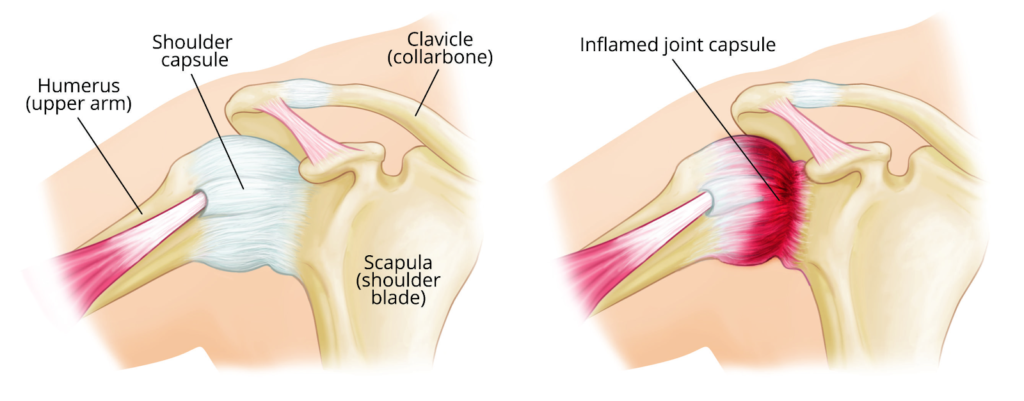Due to COVID-19, the ACS Assist development has been placed on hold for the remainder of the 2019-2020 school year (3/23/20)
Adhesive Capsulitis of Shoulder (ACS), also known as Frozen Shoulder, is a Musculoskeletal Condition involving the thickening and inflammation of the Synovial Shoulder Capsule. It is a painful disorder that results in stiffness and discomfort in the shoulder joint, as well as a limited range of motion with respect to arm movements.

This condition is typically treated via months of physical therapy, and an overall recovery period of 1 to 2 years can be expected before shoulder pain and motion are fully relieved and restored.
Treatment Options
Currently, there are operative and non-operative treatment options available for frozen shoulder patients. Operative treatments include arthroscopic capsular release of the shoulder and joint manipulation under anesthesia. Non-operative options include corticosteroid intra-articular injections, Non-Steroidal Anti-Inflammatory Drugs (NSAIDs), and physical therapy. Physical therapy may be performed under the supervision of a physical therapist. However, exercises are more often performed in the home setting, in which no health care professional is present to monitor exercise quality.
Presently, there are no commonly available devices that can record shoulder use during exercise and provide assistive measures such as heating and patient/doctor feedback. Having such a device can be greatly beneficial in helping improve the effectiveness of the physical therapy.
